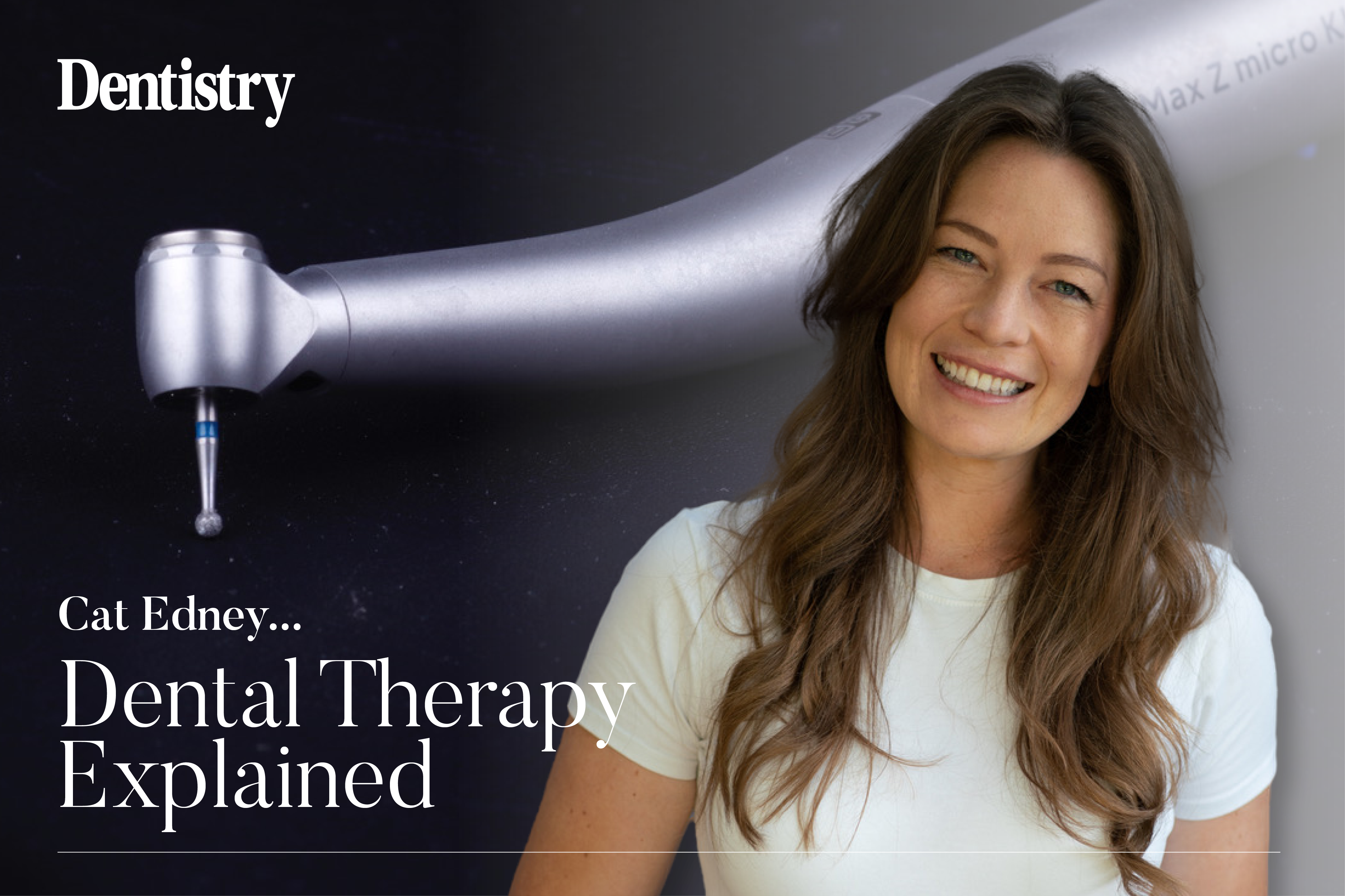
Dentistry
Dentistry deals with the oral health, encompassing the diagnosis, prevention, and treatment of oral diseases and conditions.
Dentistry deals with the oral health, encompassing the diagnosis, prevention, and treatment of... View more
What I’ve learned about dental therapy since speaking about it
-
What I’ve learned about dental therapy since speaking about it

Reflecting on the last few years, Cat Edney shares the lessons she has learned about the integration of dental therapy within the profession.
I have been incredibly fortunate that my passion for putting dental therapy back into practice has led me to a whole host of wonderful events and organisations.
Over the years I have been able to work with over four hundred dental therapists, almost one hundred dental practices and numerous dental companies. This has given me a unique mini-insight into the state of play for the UK when it comes to the use, integration and understanding of dental therapy within the profession.
I was recently asked what lessons had I learned from my time working with dental therapists and it made me reflect on the last few years and how the profession can grow and become better integrated when we understand the subtle differences.
1. Lack of awareness is more complex than first thought
When we discuss lack of awareness, we usually talk about the general public. However, the questions that arise about dental therapists from those within the profession are just as varied and are very telling.
I find that dental therapists often have as many questions as dentists do. This is in no small part down to the scope of practice document being a little out of date – or perhaps slightly broad in nature for those within the profession who feel they need the reassurance or guidance.
There was a promise of a revised scope of practice which is yet to surface; what I hope for is a modern approach to the scope of practice of dental therapists – with a focus on postgraduate training and an openness to progression, especially within the use of digital dentistry.
2. There are regional divides
There has been, without a doubt, more chance of working as a ‘full scope’ dental therapist when you live in the north west than if you live in the south east. This is also true for those living in Scotland.
However, the divides go deeper – with payment and employment terms more likely to follow a salaried model in the north of England and there being far more hourly rate positions in the midlands.
I have also found that dental therapists are often more confident in the north, and in the same regions dentists are also often more likely to have worked with a dental therapist and be interested in utilising the skillset of a dental therapist when they open their own clinics.
We often find that dental therapists working in the south of England do so on a private and direct access bases. However, following the recent changes to the NHS FP17 form, I am seeing more NHS practices advertise for and use dental therapists. The shared care model is still relatively new to many dental practices in London, though.
3. Confidence roughly ties in with graduation university
As strange as it seems, I have also found myself playing a game of guess the university when I meet dental professionals. There is certainly a number of universities that seem to install a true sense of self-worth into their graduates.
However, there are also some graduates that seem to qualify feeling overwhelmed and downtrodden. I believe this is a hangover from a number of years where the profession has not been recognised. I also feel that universities seem to be finding it difficult to get the patient numbers required for dental professionals to feel confident that they have trained enough to be called a safe beginner.
In addition, I do think that extending the foundation dentist (FD) program to all dental therapists would be a helpful start in fully integrating dental therapy into more practices in the UK. However, these programmes also need support from professionals that truly understand the nuances of working to the General Dental Council (GDC) scope of practice.
4. Progressive dentists work with dental therapists
Finally, on a positive note, the dental practices I have worked with on implementing dental therapy always have progressive dentists working within the business. This growth mindset enables them to see the true benefit, not only financially but to patients and to the business as a whole.
Customising dental practice workflows and the protocols that go alongside them is a fantastic start for any business that wants to ensure they deliver the smoothest shared care model they can. It is often the progressive dentists and therapists that drive these changes – with a proactive approach that leads to real success.
I have to admit – I started with a narrow view that was formulated on my own personal experience, that of the relatively small (at the time) online community and that of my colleagues and peers. However, I have grown to appreciate there is such variety and diversity within dentistry – no two situations are alike and the landscape is constantly evolving and changing.
The growth within the dental therapist profession is testament to this evolving landscape and those progressive individuals that work within it. My hope is for further developments for the profession, alongside the recent passing of new prescribing rights legislation. For example, scope of practice updates or postgraduate training being recognised for those that would like to demonstrate their special interests. And, of course, something that is close to my heart – growth within digital dentistry.
I am watching this space!
Catch up with Cat’s previous columns:
Follow Dentistry.co.uk on Instagram to keep up with all the latest dental news and trends.
Sorry, there were no replies found.
Log in to reply.
